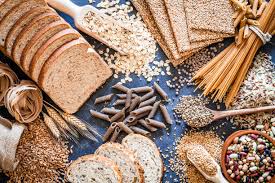
Your gut health impacts everything from your immune system to your mental wellbeing. By adding specific foods into your daily meals, you can experience healthier digestion and improve your overall health. Here are the best foods to prioritize for your gut health.
1. Fermented Vegetables
When it comes to gut health, fermented vegetables like sauerkraut and kimchi are a fantastic option, these probiotic-rich foods undergo a natural fermentation process where beneficial bacteria break down the sugars, creating an environment rich in live cultures.
To get the most benefit, look for unpasteurized versions in the refrigerated section of your grocery store. The raw, naturally fermented varieties contain the highest levels of beneficial bacteria. Start with a small serving of 1-2 tablespoons daily and gradually increase as your digestive system adjusts.
Beyond basic sauerkraut, try out other fermented vegetables like:
- Korean kimchi made with napa cabbage and spices.
- Japanese tsukemono (pickled vegetables).
- Fermented cabbage slaw.
- Russian fermented tomatoes.
2. Greek Yogurt

Greek yogurt gives you an effective combination of protein and probiotics that makes it especially beneficial for gut health. The straining process used to create Greek yogurt results in a higher concentration of protein while removing excess whey and lactose, making it easier for many people to digest.
For maximum gut-health benefits, choose plain, unsweetened varieties and look for labels indicating “live and active cultures.” You can naturally sweeten your yogurt with fresh fruit, a drizzle of honey or a sprinkle of cinnamon. Consume it as a breakfast base or afternoon snack to help maintain steady blood sugar levels throughout the day.
3. Garlic (Prebiotic-Rich)
While probiotics are often regarded as important for gut health, prebiotic foods like garlic are equally important for gut health, garlic contains high levels of inulin and fructooligosaccharides (FOS), which feed the beneficial bacteria in your gut.
To maximize garlic’s prebiotic benefits, crush or chop it and let it sit for 10-15 minutes before cooking. This allows the formation of beneficial compounds. Add it to soups, stir-fries and marinades, or roast whole bulbs until soft and creamy for a mellower flavor.
4. Beans and Lentils
These legumes are excellent sources of both soluble and insoluble fiber, essential for maintaining a healthy digestive system. The combination of different fiber types helps promote regular bowel movements while feeding beneficial gut bacteria.
To reduce potential digestive discomfort, properly prepare dried beans by soaking them overnight and discarding the soaking water, also start with smaller portions and gradually increase your intake as your digestive system adapts. Consider easier-to-digest varieties such as:
- Red lentils
- Black beans
- Mung beans
- Split peas
20+ Foods that Naturally Boost the Immune System
5. Wild-Caught Salmon
The omega-3 fatty acids in wild-caught salmon help reduce gut inflammation and support the integrity of the intestinal barrier, these healthy fats massively contribute to a diverse and healthy gut microbiome.
Set an objective to consume salmon twice a week, choosing wild-caught varieties when possible. Bake, grill, or pan-sear it with gut-healthy herbs and spices. The skin contains additional nutrients, so consider leaving it on during cooking.
6. Jerusalem Artichokes
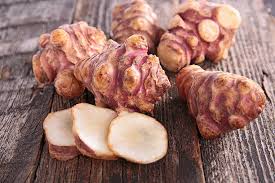
Also known as sunchokes, these knobby tubers are one of the richest sources of prebiotic fiber. Particularly their high inulin content which makes them effective at promoting the growth of beneficial gut bacteria.
For application: start with small portions, as their high fiber content can cause digestive adjustment in sensitive individuals, roast them with olive oil and herbs, slice them thin for salads or puree them into creamy soups.
7. Blueberries
Blueberries are antioxidant-rich and contribute to gut health through their high polyphenol content and fiber. These compounds help reduce inflammation and support the growth of beneficial gut bacteria.
Fresh or frozen blueberries work equally well for gut health benefits, add them to your morning yogurt, blend them into smoothies or enjoy them as a standalone snack. Their natural sweetness makes them an excellent alternative to processed desserts.
8. Sprouted Whole Grains
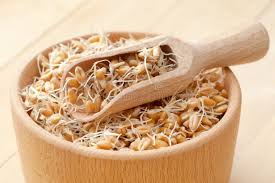
The sprouting process increases the bioavailability of nutrients (sprouted grains contain as much as ten times more nutrients than processed grains) and makes grains easier to digest. Sprouted grains also contain higher levels of fiber and beneficial compounds that support gut health.
Look for sprouted bread products or experiment with sprouting your own grains at home. Popular options include:
- Quinoa
- Brown rice
- Wheat berries
- Buckwheat
9. Bone Broth
The gelatin and collagen in bone broth help heal and seal the gut lining. These proteins also support the growth of beneficial gut bacteria and aid in digestion.
Simmer bones with vegetables and herbs for 12-24 hours to extract maximum nutrients. Use it as a base for soups, sip it warm as a beverage or use it to cook grains for added nutrition.
10. Ginger Root
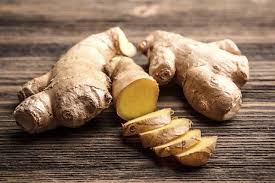
Fresh ginger supports healthy digestion by stimulating stomach acid production and reducing inflammation in the gut. It also helps prevent the growth of harmful bacteria while supporting beneficial ones.
To use, add fresh grated ginger to smoothies, steep it in hot water for tea or mix it into stir-fries and marinades. For maximum benefits, use fresh ginger rather than dried or powdered forms.
11. Almonds and Other Tree Nuts
The combination of fiber, healthy fats and polyphenols in almonds and other tree nuts supports diverse gut bacteria. Their prebiotic properties help feed beneficial gut microbes.
Soak nuts overnight to improve digestibility and reduce phytic acid content. Limit portions to 1-2 ounces daily and choose raw or dry-roasted varieties without added oils or salt.
12. Asparagus
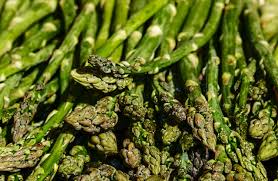
Asparagus contains high levels of inulin and other prebiotic fibers that specifically nourish beneficial gut bacteria. It also provides anti-inflammatory compounds that support gut health.
To add Asparagus to your diet, steam or roast it lightly to preserve its nutrients, you can add it to omelets, salads or grain bowls. Note that the tender tips contain the highest concentration of beneficial compounds.
13. Apple Cider Vinegar
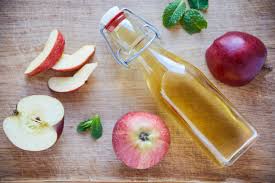
Raw, unfiltered apple cider vinegar contains beneficial bacteria and compounds that support digestive health. Its acetic acid content helps maintain a healthy pH balance in the gut.
Mix 1-2 tablespoons with water before meals to support digestion. Use it in salad dressings or marinades, always choosing varieties with “the mother” for maximum benefits.
14. Turmeric
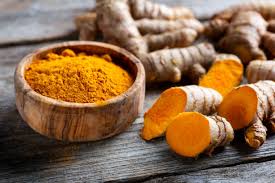
The active compound in turmeric, curcumin, helps reduce gut inflammation and supports the growth of beneficial bacteria. Its anti-inflammatory properties make it particularly beneficial for gut health.
Combine turmeric with black pepper and healthy fats to improve absorption, add it to smoothies or soups. Start with small amounts and gradually increase to avoid digestive discomfort.
Frequently Asked Questions
1. When is the best time to eat fermented foods for optimal gut health?
While fermented foods can be beneficial at any time, consuming them about 30 minutes before meals can help prime your digestive system. This timing allows the beneficial bacteria to better support digestion of the upcoming meal. However, if you experience any sensitivity, try having them with meals instead of on an empty stomach.
2. Can I get the same gut health benefits from probiotic supplements as I do from probiotic-rich foods?
While probiotic supplements can be beneficial, whole foods typically provide a broader spectrum of beneficial compounds, including enzymes, vitamins, minerals and fiber that work synergistically. Fermented foods often contain multiple strains of beneficial bacteria that naturally occur during the fermentation process, along with their metabolic byproducts, which may enhance their effectiveness.
3. What are the signs that I’m consuming too many probiotic-rich foods too quickly?
If you introduce too many probiotic-rich foods too quickly, you might experience temporary symptoms such as:
- Mild bloating or gas
- Changes in bowel movements
- Mild stomach discomfort
- Temporary increase in food sensitivities
These symptoms usually subside as your body adjusts. If you experience these signs, reduce your intake and reintroduce foods more gradually.
4. Are there certain medications that might interact with fermented foods or probiotics?
Some medications, particularly antibiotics and immunosuppressants, can interact with probiotic-rich foods. It’s best to space out your consumption of fermented foods by at least 2 hours from when you take these medications. Always consult with your healthcare provider about potential interactions, especially if you’re on regular medication or have a compromised immune system.
Conclusion
Adding these foods into your regular diet can support and improve your gut health naturally but introduce new foods gradually and pay attention to how your body responds. Also note that building a healthy gut takes time, but the benefits to your overall health make it well worth the effort.




